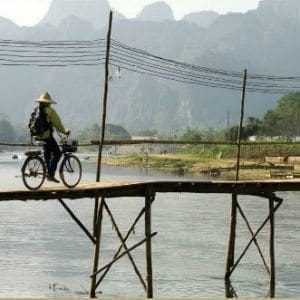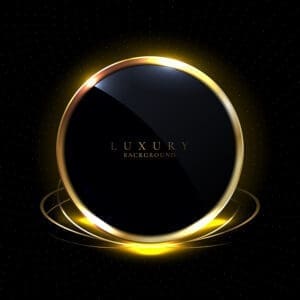 At the present time, the hospitality industry is facing some highly complex issues with no obvious answers – the OTAs, third-party review sites, Airbnb, dilutive brand expansions, thrifty millennial purchasing habits and many more. Take your pick; there’s always something to groan about with colleagues and fellow hoteliers. And yet, managers and consultants are still under the gun, expected to weather these storms like a titanium-hull icebreaker with a clear trajectory that cracks through any obstacle.
At the present time, the hospitality industry is facing some highly complex issues with no obvious answers – the OTAs, third-party review sites, Airbnb, dilutive brand expansions, thrifty millennial purchasing habits and many more. Take your pick; there’s always something to groan about with colleagues and fellow hoteliers. And yet, managers and consultants are still under the gun, expected to weather these storms like a titanium-hull icebreaker with a clear trajectory that cracks through any obstacle.
While it would be great if to have a crystal ball and speak with absolute confidence as to how events will unfold, alas that is never the case. We’re humans, not gods, after all. We mortals can never say for certain that a given strategy will work or that certain actions will guarantee a specific outcome. As such, when probed about the above-mentioned threats to our business practices, there is a power to being honest and blunt when the expectation is for you to deliver sagacious responses to every question asked.
Are the OTAs stealing our customers in the long run? I don’t know.
Is Airbnb simply opening doors to new travelers or is it destroying our business model? I’m inclined to believe the latter, but I can’t say for certain.
Will the millennials remain as entitled cheapskates or will they eventually grow up to realize the benefits of loyalty programs and upscale service delivery for a reasonable price? I certainly hope so, but only time will tell.
Declaring a lack of knowledge in these instances demonstrates a different form of confidence because you are leaving yourself vulnerable. It’s an admirable quality to be able to admit fault or ignorance in certain situations.
Over the course of 40+ year business career, it’s safe to say that I’ve had my fair share of business interactions. In my veteran opinion, a person who is capable of saying those three golden words is always preferable to the businessperson who is the spitting image of genius and bravura with definitive answers to every scenario imaginable. And my reasoning is this: a voice of unwavering poise and foresight leaves no room for second options or creative solutions. Whereas an ‘I don’t know’ opens the doors to a constructive, back-and-forth conversation, an ‘I have all the answers’ approach prevents an even better resolution from surfacing.
That said, there are many ways to utter, “I don’t know,” and only a few are useful. It comes down to body language and continuing to move the ball forward, even if it’s only inches. For instance, a blasé, “I dunno,” accompanied by an equally apathetic shoulder shrug is not helpful because it stalls the discussion. A firm, “I don’t know,” spoken with care and concern, and matched with a follow-up statement, can be highly productive, however.
Try these two on for size: “I don’t know. I’m trying to understand that problem myself and I think about it every day. While I don’t have a definitive answer, here’s what I do know…” or “I can’t answer that right now, but let me do some more research and get back to you by [date] with some actionable ideas.”
Both of these are constructive and help to eliminate any vagary associated with speaking those three titular words. Whether you are discussing ways to convert OTA customers or counteract Airbnb, sometimes starting off from a place of naiveté will help you reach an answer that satisfied the most parties. So, next time you’re confronted with a situation where the next steps or outcomes are unclear, know that ‘I don’t know’ isn’t a death knell, and far from it in fact when stated correctly.
About the author
 Larry Mogelonsky is the founder of LMA Communications Inc. (www.lma.ca), an award-winning, full service communications agency focused on the hospitality industry (est. 1991). Larry is also the developer of Inn at a Glance hospitality software. As a recognized expert in marketing services, his experience encompasses Four Seasons Hotels & Resorts and Preferred Hotels & Resorts, as well as numerous independent properties throughout North America, Europe and Asia. Larry is a registered professional engineer, and received his MBA from McMaster University. He’s also a principal of Cayuga Hospitality Consultants, an associate of G7 Hospitality and a member Laguna Strategic Advisors. His work includes three books “Are You an Ostrich or a Llama?” (2012) and “Llamas Rule” (2013) and “Hotel Llama” (2014). You can reach Larry at larry@lma.ca to discuss any hospitality business challenges or to review speaking engagements.
Larry Mogelonsky is the founder of LMA Communications Inc. (www.lma.ca), an award-winning, full service communications agency focused on the hospitality industry (est. 1991). Larry is also the developer of Inn at a Glance hospitality software. As a recognized expert in marketing services, his experience encompasses Four Seasons Hotels & Resorts and Preferred Hotels & Resorts, as well as numerous independent properties throughout North America, Europe and Asia. Larry is a registered professional engineer, and received his MBA from McMaster University. He’s also a principal of Cayuga Hospitality Consultants, an associate of G7 Hospitality and a member Laguna Strategic Advisors. His work includes three books “Are You an Ostrich or a Llama?” (2012) and “Llamas Rule” (2013) and “Hotel Llama” (2014). You can reach Larry at larry@lma.ca to discuss any hospitality business challenges or to review speaking engagements.
This article may not be reproduced without the expressed permission of the author.



















